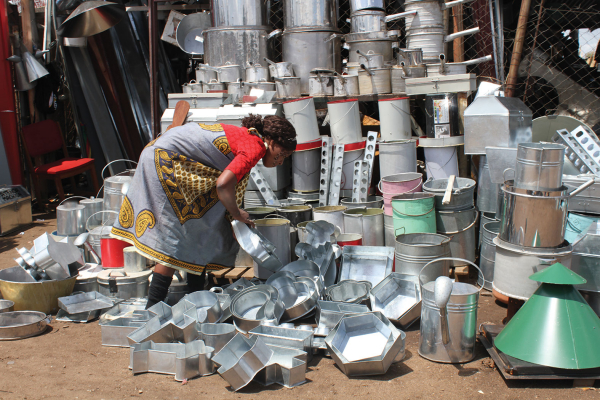
Tropical Reinsurance Company managing director, Ushe Mungaraza (UM) was on Tuesday elected as the new president of the Insurance Institute of Zimbabwe (IIZ), taking over from Edward Gomba. NewsDay (ND) business reporter, Mthandazo Nyoni caught up with Mungaraza during the IIZ annual conference held in Victoria Falls this week to get to know about the plans he has for the organisation. Below are the excerpts of the interview.
By MTHANDAZO NYONI
ND: Congratulations for being elected as IIZ president. As new IIZ president, what plans do you have for the organisation?
UM: IIZ is a training body, so that’s the mandate. That’s what should be delivered to the industry. I think there are issues which we have been running with as IIZ which we need to complete. The plan is to kind of turn this into an insurance college.
So you have heard of our plan where we have purchased a property which we want to turn into a proper school of insurance with facilities that will actually enable people to come and have lectures and such things.
ND: Do you have any timelines for this to say up to this time you would have started?
UM: The intention is that by mid next year we should have worked on the renovations.
ND: Can you tell us about your enrolment? Which sectors are you targeting?
- Chamisa under fire over US$120K donation
- Mavhunga puts DeMbare into Chibuku quarterfinals
- Pension funds bet on Cabora Bassa oilfields
- Councils defy govt fire tender directive
Keep Reading
UM: There are other sectors, for example the medical societies. The idea is to expand IIZ to cater for those and what we have been doing, for example, is to come up with sector-specific qualifications.
For example, at the beginning it was just a certificate which would cater for every practitioner whether you were in short term or you were in life. But now the idea is to then come up with sector-specific qualifications. We are seeing ourselves also wanting to move into the medical sphere.
A good number of our members at IIZ also do medical insurance. So that becomes an area where they then come in with specific products that service their business.
ND: What is your impression about insurance sector in Zimbabwe?
UM: I prefer to stick to issues that relate to us as IIZ, as a training body. I think what we have seen is, in terms of skills, Zimbabwe is a country which is endowed with skills.
But I think just like any other industry we are also beginning to see a gap in terms of skills especially at the entry level.
So I think as IIZ we should then try and close that gap and maybe ensure that the people who are coming into the industry, for example, are able to come up with products that meet the current needs of the modern environment. We have got our challenges as an industry just like any other sector of the economy.
ND: Can you state them? What are those challenges?
UM: Yes, for example, the issue of liquidity which is obtaining in the economy. It affects the smooth operation of the industry.
For example, the way of industry is to pay claims as they happen. So I think such issues affect the smooth operations of industry. But as I said I think I am happier to look at the side of training which is the mandate of IIZ, issues of skills development.
ND: What is the current state of the insurance sector in Zimbabwe? Are there any opportunities?
UM: There are opportunities of course. I think what you would see is every situation presents opportunities. For example, if you look, there are efforts to be able to expand the market and look at the lower end of our market, people who are not insured.
The informal market, I think ,is a reality now. So I think as a market we also need to be able to have skills that can tap into that market.
So we have got the right skills that are able to go down and tap onto the emerging market in terms of the micro-insurance.
For me that’s quite a big opportunity. We have seen development for example, in terms of mobile payments.











